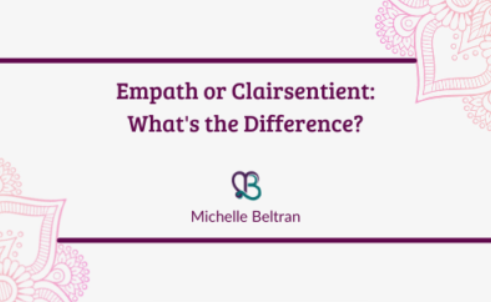
Many people have heard of empaths, but clairsentients are less well-known. The two groups are very similar. Despite overlapping abilities, though, there are a few differences.
An empath is so in tune with the feelings of others that he or she automatically picks up on external emotions. A clairsentient person also has that gift but with an additional feature: They have access to detailed knowledge that nobody told them.
Empaths
An empath’s experience is different from regular empathy. When most people talk about empathy, they mean they can understand what someone else is feeling. They sympathize.
When an empath says, “I understand how you feel,” they mean it literally. The empath experiences other people’s emotions as vividly and intensely as their own.
Each person’s emotional state leaks into the environment. Empaths, who are sensitive to emotional energies, are like emotional lightning rods. Others’ emotions find the empath and burrow into the empath’s mind and soul, creating a shared experience.
That’s why empaths might struggle with, for instance, watching the news. When an empath sees someone else suffering, the empath suffers, too.
Because of their ability to experience others’ emotions, empaths are highly compassionate.
Clairsentients
Most clairsentient people are also empaths. However, clairsentients also pick up on the context surrounding those emotions.
Clairsentient people have enhanced perception that allows them to make sense of emotional energies. A clairsentient person is even more sensitive than most empaths. Whereas an empath might feel someone’s emotions at the moment, a clairsentient can pick up on emotions that others felt in the past.
As one might guess based on the name, clairsentience includes a form of clairvoyance. A clairsentient person gets impressions, both mental and physical, to explain emotions. They might get visual flashes of the events that caused people’s feelings. Entire stories with full explanations sometimes pop into their minds.
Empaths vs. Clairsentients
Empaths might not know the cause of other people’s emotions. For instance, an empath might feel their friend’s sorrow, but unless the friend explains the emotion’s source, the empath won’t necessarily guess correctly. In contrast, a clairsentient person wouldn’t need an explanation.
Knowledge is the most significant difference between empaths and clairsentients. Clairsentients have greater access to why other people feel what they feel.
Article originally published on Michelle Beltran‘s blog.


